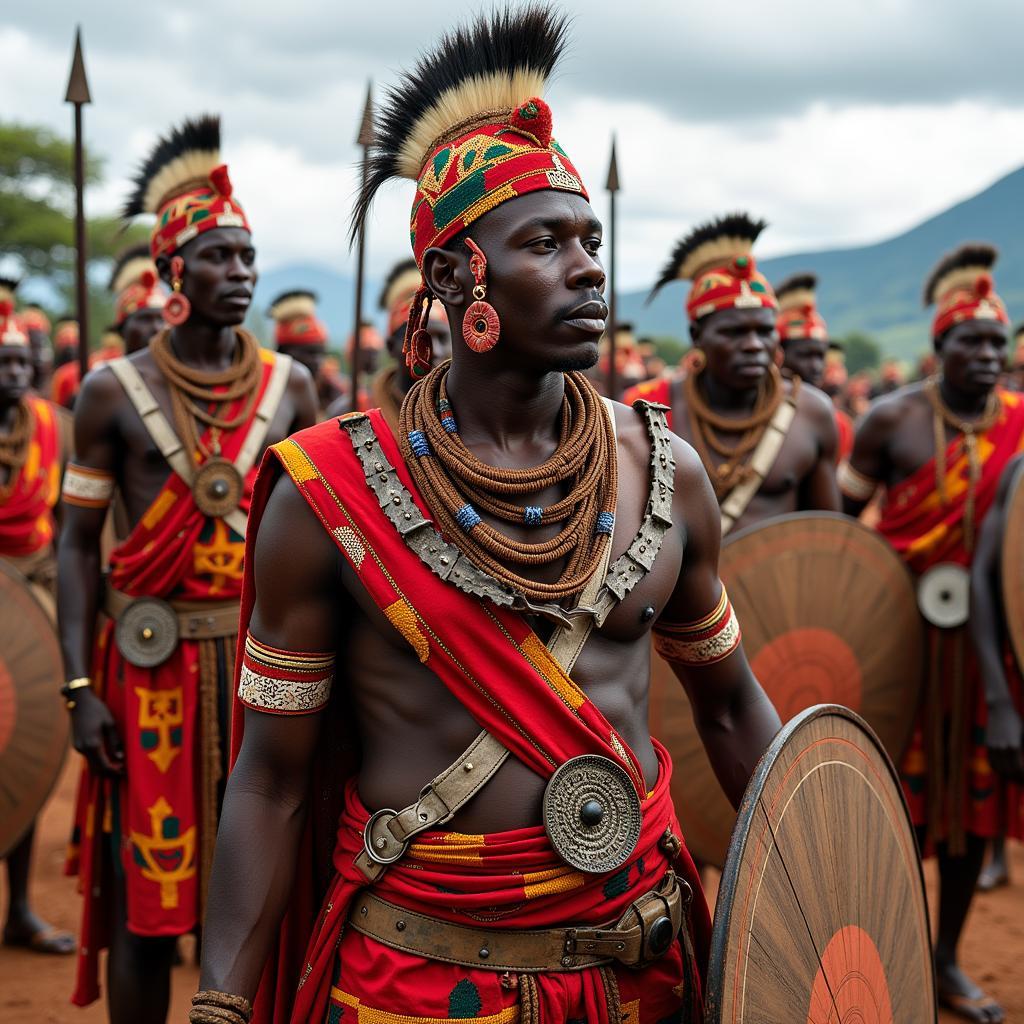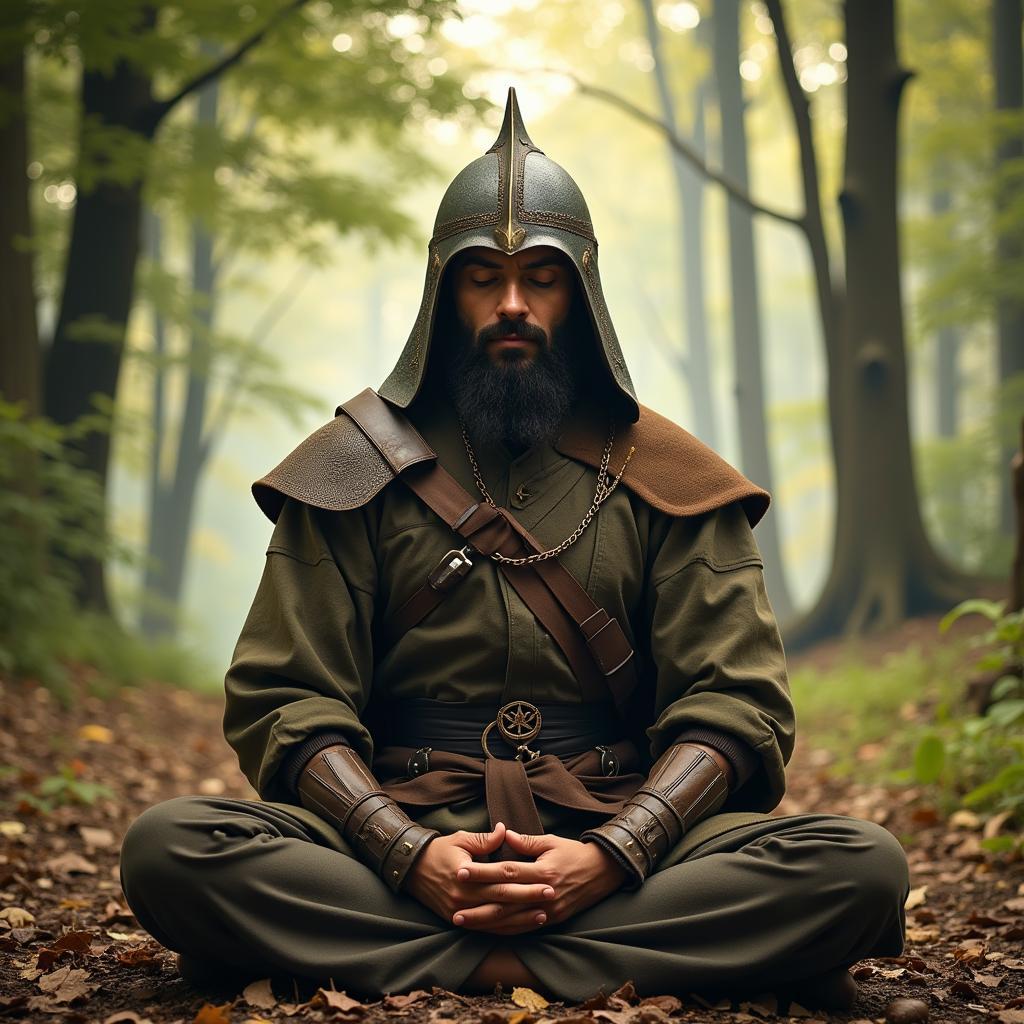Warrior Societies, a fascinating and complex aspect of human history, are often associated with conflict and violence. However, a deeper understanding reveals that these societies were not simply driven by aggression but shaped by a multitude of factors, including cultural values, environmental pressures, and the pursuit of power and survival. This exploration aims to delve into the complexities of warrior societies, examining their motivations, structures, and ultimately, their impact on the path towards peace.
 Zulu warriors in traditional attire, demonstrating the cultural significance of warriorhood in certain societies.
Zulu warriors in traditional attire, demonstrating the cultural significance of warriorhood in certain societies.
What Defines a Warrior Society?
Warrior societies are characterized by a strong emphasis on military prowess and martial values. These societies often prioritize military skills and elevate warriors to positions of high social standing. This can manifest in various ways, from the Spartan agoge of ancient Greece to the samurai class of feudal Japan. While often perceived as inherently violent, warrior societies also developed complex codes of honor and conduct, regulating warfare and promoting social cohesion within their own ranks. For example, the concept of chivalry in medieval Europe emphasized courage, loyalty, and courtesy, even in the midst of conflict. This intertwining of martial values with social and ethical codes is a key element in understanding the multifaceted nature of warrior societies. One aspect of warrior societies to consider is their role in shaping social structures, often influencing political hierarchies and economic systems. feudalism developed as a way for medieval societies to organize their resources and maintain social order.
The Roots of Warrior Culture
The development of warrior societies is often linked to environmental pressures, resource scarcity, and the need for defense against external threats. In resource-rich regions, competition for control could lead to the rise of militaristic cultures, while in harsher environments, survival itself might necessitate a warrior ethos. Understanding these underlying factors is crucial to moving beyond simplistic notions of inherent aggression. Consider how ancient Americans and their descendants created societies that adapted to diverse environments, some of which fostered warrior traditions. ancient americans and their descendants created societies that is a helpful resource for understanding this dynamic.
Warrior Societies and the Quest for Peace
While seemingly paradoxical, the study of warrior societies can offer valuable insights into the pursuit of peace. By understanding the factors that contribute to conflict, we can better address the root causes of violence and develop strategies for building a more peaceful world. Exploring the history of world history cultures states and societies to 1500 offers a broader context for understanding the rise and fall of warrior societies.
Can a Warrior Society be Peaceful?
This question challenges conventional assumptions. While warrior societies often engage in conflict, they also possess the potential for internal peace and stability. The strong social bonds and shared values that characterize these societies can contribute to a sense of order and security within their own communities. However, the very same structures that promote internal peace can also perpetuate conflict with outsiders. “A society that separates its scholars from its warriors will have its thinking done by cowards and its fighting by fools.” – Thucydides. The quote by Thucydides highlights the potential pitfalls of separating intellectual pursuits from martial endeavors. Examining the society that separates its scholars from its warriors can further illuminate this point.
 A warrior meditating, symbolizing the inner peace that can be cultivated even within a warrior ethos.
A warrior meditating, symbolizing the inner peace that can be cultivated even within a warrior ethos.
“True warriors are not those who seek to conquer others, but those who conquer themselves.” – Sun Tzu. This quote encapsulates the idea that true strength lies in self-mastery and the pursuit of inner peace.
Conclusion
Warrior societies, though often associated with conflict, present a complex and nuanced picture of human history. By understanding their motivations, structures, and impact, we can gain valuable insights into the dynamics of conflict and the pursuit of lasting peace. Examining warrior societies provides an opportunity to learn from the past and build a future where peace is not merely the absence of war, but a positive and enduring state of being. Remember, examining american warrior society can shed light on specific cultural contexts.
FAQ (Frequently Asked Questions)
- What are the common characteristics of warrior societies?
- How did environmental factors influence the development of warrior cultures?
- Can warrior societies contribute to peace?
- What are some examples of warrior societies throughout history?
- How can understanding warrior societies inform our understanding of peacebuilding?
- What are the ethical implications of warrior cultures?
- How can we transform warrior societies into peaceful ones?
Need more support? Contact us 24/7: Phone: 02043854663, Email: [email protected] or visit us at Zone 34, Bac Giang, 260000, Vietnam.